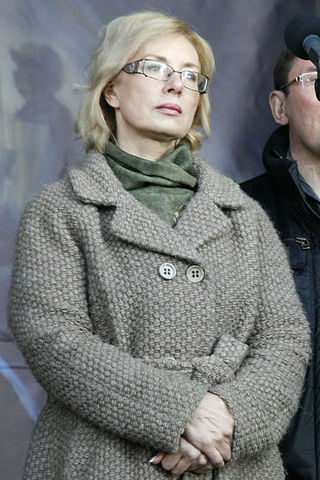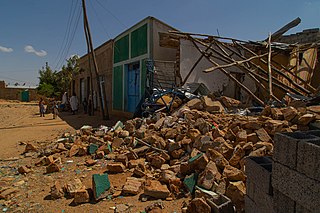
Crimes against humanity are widespread or systemic criminal acts which are committed by or on behalf of a de facto authority, usually by or on behalf of a state, that grossly violate human rights. Unlike war crimes, crimes against humanity do not have to take place within the context of wars, and they apply to widespread practices rather than acts which are committed by individuals. Although crimes against humanity apply to acts which are committed by or on behalf of authorities, they do not need to be part of an official policy, and they only need to be tolerated by authorities. The first prosecution for crimes against humanity took place during the Nuremberg trials. Initially considered for legal use, widely in international law, following the Holocaust, a global standard of human rights was articulated in the Universal Declaration of Human Rights (1948). Political groups or states that violate or incite violations of human rights norms, as they are listed in the Declaration, are expressions of the political pathologies which are associated with crimes against humanity.
Sexual violence is any sexual act or attempt to obtain a sexual act by violence or coercion, act to traffic a person, or act directed against a person's sexuality, regardless of the relationship to the victim. It occurs in times of peace and armed conflict situations, is widespread, and is considered to be one of the most traumatic, pervasive, and most common human rights violations.
Human rights in Ukraine is a highly contested topic. Since 2017, Freedom House has given Ukraine ratings from 60 to 62 on its 100-point scale, and a "partly free" overall rating. Ratings on electoral processes have generally been good, but there are problems with corruption and due process.

Lyudmyla Leontiyivna Denisova is a Ukrainian politician. After twice serving as Minister of Social Policy of Ukraine, Denisova worked as Ombudsman for Human Rights in Ukraine from March 2018 to May 2022.

Wartime sexual violence is rape or other forms of sexual violence committed by combatants during armed conflict, war, or military occupation often as spoils of war, but sometimes, particularly in ethnic conflict, the phenomenon has broader sociological motives. Wartime sexual violence may also include gang rape and rape with objects. A war crime, it is distinguished from sexual harassment, sexual assaults and rape committed amongst troops in military service.

The Democratic Republic of the Congo, and the east of the country in particular, has been described as the "Rape Capital of the World," and the prevalence and intensity of all forms of sexual violence has been described as the worst in the world. Human Rights Watch defines sexual violence as "an act of a sexual nature by force, or by threat of force or coercion," and rape as "a form of sexual violence during which the body of a person is invaded, resulting in penetration, however slight, of any part of the body of the victim, with a sexual organ, or of the anal or genital opening of the victim with any object or other part of the body."
The 2011 Libyan rape allegations refer to allegations that Gaddafi's forces in Libya were committing mass rape during the 2011 Libyan civil war. Prosecutor of the International Criminal Court Luis Moreno Ocampo said "we have information that there was a policy to rape in Libya those who were against the government." Libyan psychologist Seham Sergiwa said she distributed questionnaires in opposition-held areas and along the Libya–Tunisia border, and 259 women responded that they were raped. Sergiwa told Amnesty International's specialist on Libya that she had lost contact with the 140 victims she interviewed and was unable to provide documentary evidence. In March 2011, Iman al-Obeidi said she was gang-raped before Libyan security services dragged her away.

Human rights violations during the Syrian civil war have been numerous and serious, with United Nations reports stating that the war has been "characterized by a complete lack of adherence to the norms of international law" by the warring parties who have "caused civilians immeasurable suffering". For a relatively small number of these war crimes, prosecution of Syrian civil war criminals has resulted.
The term international framework of sexual violence refers to the collection of international legal instruments – such as treaties, conventions, protocols, case law, declarations, resolutions and recommendations – developed in the 20th and 21st century to address the problem of sexual violence. The framework seeks to establish and recognise the right all human beings to not experience sexual violence, to prevent sexual violence from being committed wherever possible, to punish perpetrators of sexual violence, and to provide care for victims of sexual violence. The standards set by this framework are intended to be adopted and implemented by governments around the world in order to protect their citizens against sexual violence.

During the ongoing Russo-Ukrainian War between the Ukrainian government forces and pro-Russian separatists in the Donbas region of Ukraine that began in April 2014, many international organisations and states noted a deteriorating humanitarian situation in the conflict zone.
Violence against women is an entrenched social problem in Ukrainian culture engendered by traditional male and female stereotypes. It was not recognized during Soviet era, but in recent decades the issue became an important topic of discussion in Ukrainian society and among academic scholars.
The Kashmir conflict has been beset by large scale usage of sexual violence by multiple belligerents since its inception.

Russian war crimes since 1991 are the violations of the law of war, including the Hague Conventions of 1899 and 1907 and the Geneva Conventions, consisting of war crimes, crimes against humanity, and the crime of genocide, which the official armed and paramilitary forces of the Russian Federation have been accused of committing since the dissolution of the Soviet Union. This accusation also extends to the aiding and abetting of crimes which have been committed by quasi-states or puppet states which are armed and financed by Russia, including the Luhansk People's Republic and the Donetsk People's Republic. These war crimes have included murder, torture, terrorism, deportation or forced transfer, abduction, rape, looting, unlawful confinement, unlawful airstrikes or attacks against civilian objects, and wanton destruction.

Sexual violence in the Tigray War included, according to the United Nations Special Representative on Sexual Violence in Conflict, Pramila Patten, people forced to rape family members, "sex in exchange for basic commodities", and "increases in the demand for emergency contraception and testing for sexually transmitted infections". As of August 2021, the number of rape victims ranged from a minimum estimate of 512–516 rapes registered with hospitals in early 2021 to 10,000 rapes according to British parliamentarian Helen Hayes and 26,000 women needing sexual and gender-based violence services according to the United Nations Population Fund. Several claims have made implicating both sides of the conflict in the systematic use of rape as a weapon of war against the civilian population.

All sides of the Tigray War have been repeatedly accused of committing war crimes since it began in November 2020. A September 2022 report by the UN found evidence of widespread "war crimes and crimes against humanity" committed by all parties, in particular, the Ethiopian federal government, the State of Eritrea and the Tigray People's Liberation Front (TPLF)."

Oleksandra Vyacheslavivna Matviichuk is a Ukrainian human rights lawyer and civil society leader based in Kyiv. She heads the non-profit organization Centre for Civil Liberties and is an active campaigner for democratic reforms in her country and the OSCE region.

Since the 2022 Russian invasion of Ukraine, Russian authorities and armed forces have committed multiple war crimes in the form of deliberate attacks against civilian targets, massacres of civilians, torture and rape of women and children, and indiscriminate attacks in densely populated areas.

Women are active in a variety of roles in the 2022 Russian invasion of Ukraine that began on 24 February 2022 and have been affected in a number of ways.

The Bucha massacre was the mass murder of Ukrainian civilians and prisoners of war by Russian Armed Forces during the fight for and occupation of the Ukrainian city of Bucha amid the Russian invasion of Ukraine. Photographic and video evidence of the massacre emerged on 1 April 2022 after Russian forces withdrew from the city.
The torture of Russian soldiers in Mala Rohan was an incident during the 2022 Russian invasion of Ukraine that occurred in the village of Mala Rohan. As documented by the UN High Commissioner for Human Rights, members of Ukrainian armed forces shot the legs of three captured Russian soldiers and tortured Russian soldiers who were wounded. The incident is likely to have occurred on the evening of March 25, 2022 and was first reported following the publication on social media of a video of unknown authorship between March 27 and March 28. As a case of summary execution and torture of prisoners of war, the incident qualifies as a war crime.











